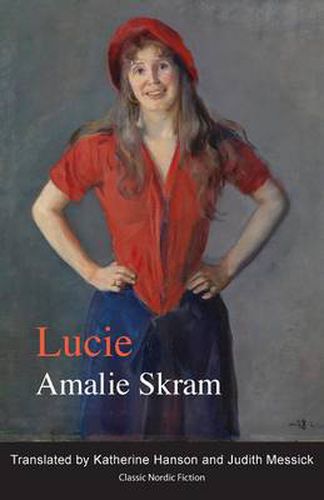Readings Newsletter
Become a Readings Member to make your shopping experience even easier.
Sign in or sign up for free!
You’re not far away from qualifying for FREE standard shipping within Australia
You’ve qualified for FREE standard shipping within Australia
The cart is loading…






This title is printed to order. This book may have been self-published. If so, we cannot guarantee the quality of the content. In the main most books will have gone through the editing process however some may not. We therefore suggest that you be aware of this before ordering this book. If in doubt check either the author or publisher’s details as we are unable to accept any returns unless they are faulty. Please contact us if you have any questions.
This novel tells the story of the misalliance between Lucie, a vivacious and beautiful dancing girl from Tivoli, and Theodor Gerner, a respectable lawyer from the strait-laced middle society of nineteenth-century Norway. Having first kept her as a mistress, Gerner is so captivated by Lucie’s charms that he marries her, only to discover that his project to turn her into a proper and demure housewife is continually frustrated by her irrepressible sensuality and lack of fine breeding. What had made her alluring as a mistress makes her unacceptable as a wife. His attempts to govern her behaviour develop gradually into a harsh tyranny against which she rebels in a manner which brings misery and despair to both. Amalie Skram, a contemporary of Ibsen, expresses the same criticism of repressive social mores and hypocrisy here as he does in plays like A Doll’s House and Ghosts, although in a deeply personal way. In this novel from 1888, as in her other novels, she makes an impassioned statement on the double standard, contributing to the great debate about sexual morality which engaged many Scandinavian writers in the late nineteenth century. She also presents a closely observed realistic depiction of a lively cross-section of Kristiania society from the turn of the century, ranging from high society dress parties to arid country cottages to dark and dingy tenements reeking of poverty.
$9.00 standard shipping within Australia
FREE standard shipping within Australia for orders over $100.00
Express & International shipping calculated at checkout
This title is printed to order. This book may have been self-published. If so, we cannot guarantee the quality of the content. In the main most books will have gone through the editing process however some may not. We therefore suggest that you be aware of this before ordering this book. If in doubt check either the author or publisher’s details as we are unable to accept any returns unless they are faulty. Please contact us if you have any questions.
This novel tells the story of the misalliance between Lucie, a vivacious and beautiful dancing girl from Tivoli, and Theodor Gerner, a respectable lawyer from the strait-laced middle society of nineteenth-century Norway. Having first kept her as a mistress, Gerner is so captivated by Lucie’s charms that he marries her, only to discover that his project to turn her into a proper and demure housewife is continually frustrated by her irrepressible sensuality and lack of fine breeding. What had made her alluring as a mistress makes her unacceptable as a wife. His attempts to govern her behaviour develop gradually into a harsh tyranny against which she rebels in a manner which brings misery and despair to both. Amalie Skram, a contemporary of Ibsen, expresses the same criticism of repressive social mores and hypocrisy here as he does in plays like A Doll’s House and Ghosts, although in a deeply personal way. In this novel from 1888, as in her other novels, she makes an impassioned statement on the double standard, contributing to the great debate about sexual morality which engaged many Scandinavian writers in the late nineteenth century. She also presents a closely observed realistic depiction of a lively cross-section of Kristiania society from the turn of the century, ranging from high society dress parties to arid country cottages to dark and dingy tenements reeking of poverty.